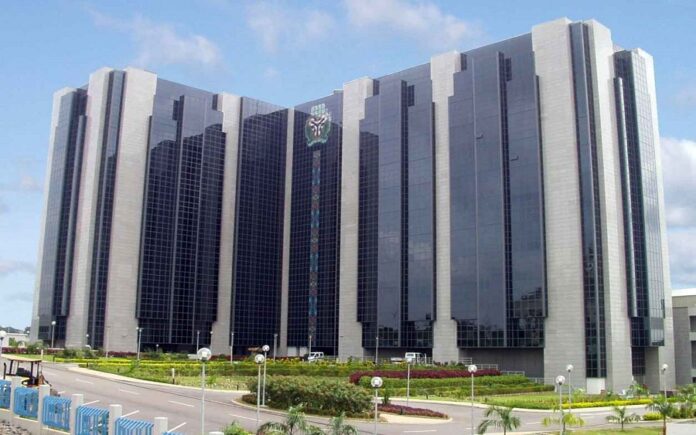The Central Bank of Nigeria (CBN) has read the riot act to bank customers converting dollars to naira as election spending intensifies.
Speaking yesterday during the Monetary Policy Committee (MPC) meeting held in Lagos, CBN Governor, Godwin Emefiele, said the apex bank will continue to monitor liquidity in the financial system by mopping up cash.
The MPC had also increased the Monetary Policy Rate (MPR)- benchmark interest rate from 13 to 14 per cent; retained the asymmetric corridor at +100/-700 basis points around the MPR; retained the Cash Reserve Ratio (CRR) at 27.5 per cent; and retained the Liquidity Ratio at 30 per cent.
Announcing the committee decisions, Emefiele said: “As far as we are concerned, we monitor liquidity in the subsystem. We will use our powers to mop us cash and for those taking money from banks to buy dollars. It is illegal to do so. If the security agencies hold you, you will know the implication on that.” Emefiele said the CBN will place Post no Debit on account of customers violating the rule.
“We are monitoring customers and banks, any banks involved will be sanctioned. We will place Post no Debit on the defaulting customer’s account. It is very injurious tool to stop you from conducting illegal flows, either domestic or foreign currency,” he said.
Emefiele advised perpetrators of currency conversion to desist from the practice or be sanctioned. “We will conduct investigations, and we will have proof and you will not be able to conduct transactions in any Nigerian bank,” he said.
Speaking on rising inflation, he said rise in inflation is affecting the purchasing power of the people. He added that inflation rise, is not particular to Nigeria as most developed economies facing a threat of recession.
He said inflation in several advanced economies pushed higher and further away from the long-run objectives of their central banks, reflecting the sustained increase in the price of food, energy, and other commodities due to the harsh combination of persisting supply chain disruptions and pent-up demand.
In the Emerging Markets and Developing Economies (EMDEs), inflation is also on the rise, compounded by legacy structural challenges as well as heightened exchange rate pressures, driven by rising capital flow reversals in addition to the outlined shocks from the global economy.
The Committee noted with concern the persisting uptick in headline inflation (year-on-year) to 18.60 per cent in June 2022 from 17.71 per cent in May 2022, an 89-basis point increase in just one month. This continued increase in inflation was driven by increases in both the core and food components to 15.75 and 20.60 per cent in June 2022.
The considerable rise in core inflation resulted largely from the rising cost of production due to high energy prices associated with the persistent disruptions to power supply, hike in electricity tariff, continued scarcity of Premium Motor Spirit (PMS), and rising price of Automotive Gas Oil (AGO). The increase in the food component was, however, driven by shocks to food
The committee assessed the impact of emerging external shocks and legacy issues on price development and the recovery of output growth in the short to medium term. Members further noted the continued effort by both the monetary and fiscal authorities to dampen price pressures and sustain the recovery of output growth.
Emefiele said: “We take rising inflation very serious as it may retard growth. The US fed has increased rates four times. We cannot just continue to watch inflation, something must be done to rein in inflation. We conducted survey, and felt that whereas we are seeing output growth, we need to rein in inflation
“As far as we see inflation rising, it must be dealt with. I want to assure that MPC is determined that if inflation continues to rise, we will continue to tighten. We are looking at other measures, like supporting agriculture to see moderation in food prices, but we cannot promise anybody that we will not continue to raise rates,” he said.
He said that foreign exchange inflow through the RT200 FX Programme in first quarter and second quarter had increased substantially to approximately $600 million as at June 2022. Members also noted the increase in diaspora remittances as a result of the Naira for Dollar incentive and urged the CBN not to relent in its efforts to encourage foreign exchange inflow to the economy.



